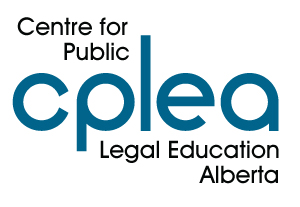This Guide provides a list of Indigenous organizations and services in Alberta. Also included are national and umbrella organizations with offices located elsewhere.The Guide is compiled and produced by the Ministry of Indigenous Relations in order to provide contact information for these Indigenous organizations and services .
Are you First Nations, Métis, or Inuit?
Gathered on this page are resources that were developed with you in mind. But there may be general resources that are also appropriate.
See the section Learn More About... or search the list of all legal topics to find other relevant information.
See also:
CPLEA Suggested Resources
Not sure where to begin finding answers to your questions. Get started with our suggested resources. See additional resources below for more information.
This video explains the traditional role of Aboriginal grandparents, the historical significance of family members being severed from one another, and what a grandparent can do to maintain connection to their grandchild in government care in Alberta today. Grandparents will learn about Family Group Conferences, guardianship, kinship care, and visitation and feel empowered in their sacred family role.
This resource, Support Services for Albertans, is a comprehensive, but not exhaustive, list of organizations across the province that provide a multitude of services that compliment the support Legal Aid Alberta is able to provide. The resource mainly focuses on organizations offering legal supports to residents, but also provides information about organizations that provide social supports for some of the most vulnerable members of our communities. This includes, but is not limited to, women in abusive relationships, Indigenous Albertans, youth, and the homeless.
Alberta Resources
This online resource is from the Government of Alberta and provides information on initiatives and programs currently underway in Alberta through partnerships between the Alberta Solicitor General, Alberta Justice and Aboriginal communities, groups and organizations, as well as other topics of interest regarding Aboriginal justice.
The Aboriginal Multi-Media Society is an independent Aboriginal communications organization dedicated to providing objective, mature and balanced coverage of news, information and entertainment relevant to Aboriginal issues and peoples. Publications include: Alberta Sweetgrass, BC Raven’s Eye, Ontario Birchbark, Saskatchewan Sage and Windspeaker (national). Selected articles are featured on the website. They also operate the CWFE-FM radio station, available live online.
The BearPaw Legal Education & Resource Centre (BearPaw Education) is a program offered by Native Counselling Services of Alberta and funded by the Alberta Law Foundation aimed at helping Aboriginal people navigate the legal system and gain awareness of their legal rights. The BearPaw Education's mandate is to promote awareness of the legal rights and obligations of Aboriginal people living in Alberta and to enhance Aboriginal peoples’ connection and access to justice.
A comic book produced by the BearPaw Education (NCSA), Breach is an entertaining look at a serious topic - breach charges and administration of justice. This youth-oriented resource aims to reinforce the importance of following court orders by explaining the consequences of breaching such orders as well as the benefits of following them.
The First Nations Information Connection is an initiative of the University of Alberta Libraries in collaboration with First Nations institutions and in partnership with Alberta Advanced Education and Technology, Sun Microsystems, OCLC, and Nexen Inc. It allows students and faculty in seven First Nations educational institutions to take full advantage of the Lois Hole Campus Alberta Digital Library. The FNIC also provides access to a collection of culturally significant web resources. Most resources are also accessible to the general public.
Native Counselling works to ensure that Native people receive fair and equitable treatment in the justice system. NCSA delivers its programs and services province wide.. Its programs and services are designed and delivered for Aboriginal people, by Aboriginal people.
REACH is Edmonton's Council for Safe Communities. REACH is a community-based organization working to mobilize and coordinate organizations, community groups and Edmontonians to find innovative solutions to prevention and community safety.
The Métis Nation of Alberta (MNA) has a long history. Since its inception in 1928, it has existed to advocate on behalf of and meet the needs and aspirations of Métis people in Alberta. The mandate of the MNA is to: be a representative voice on behalf of Métis people in Alberta; provide Métis people an opportunity to participate in government’s policy and decision making process and, most importantly; promote and facilitate the advancement of Métis people through the pursuit of self-reliance, self-determination and self-management.
Canada/Federal
2019 Voting Guide for Indigenous Women, Two-spirit, and LGBTQQIA Voters was created by the Native Women's Association of Canada (NWAC) with support from Elections Canada. The voting guide takes Indigenous women and gender-diverse people through a step-by-step process:
- how to register to vote
- how to vote if you are a student
- how to prove your identity and address
- what types of identification items you can use to prove your identity and address
- how to vote at the advance polls, by mail or on election day
- what to expect at the polling station
Along with a list of the political parties, the guide offers a number of tips on how to decide whom to vote for (for example, think about the issues you care about and look at how the different parties address those issues) and provides a section on how Canada’s political system works.
LawNow is a bi-monthly digital public legal education magazine which has been published by the Centre for Public Legal Education Alberta for 40 years. Its articles and columns are written in plain language take a practical look at how the law relates to the every day lives of Canadians. In each issue, LawNow’s aboriginal law column takes a look at a specific topic in this area of law and explains it clearly and concisely.
The Guide is meant to act as a resource for lawyers to learn about historical and cultural elements that provide context for the professional relationship between an Indigenous person and their lawyer. It also provides tools to help lawyers represent Indigenous clients as effectively as possible, and a number of resources to encourage lawyers to continue their education. The Advocates' Society, in partnership with the Indigenous Bar Association and the Law Society of Ontario, developed the guide.
The Hope for Wellness Helpline is available to all Indigenous people across Canada. Experienced and culturally competent counsellors are reachable by telephone and online ‘chat’ 24 hours a day, 7 days a week.
Telephone support is available in English, French, Cree, Ojibway, and Inuktitut. Online Chat services are only available in English and French.
The Indigenous Bar Association (IBA) is a non-profit professional organization for Indian, Inuit and Métis persons trained in the field of law. Its membership consists of Indigenous lawyers (practicing and non-practicing), judges, law professors, legal consultants and law students. As the field of Indigenous law develops, the public is becoming more aware and interested in Indigenous legal issues. The IBA plays an active role in promoting the development of Indigenous law and supporting Indigenous legal practitioners.
The Law Society recognizes that First Nation, Métis and Inuit (FNMI) peoples may face unique access to justice challenges. The society has published the following 3 resources especially for indigenous peoples:
- Guide: Handling Everyday Legal Problems
- Fact Sheet: What the Law Society does
- Fact Sheet: Working with a lawyer or paralegal








Follow CPLEA